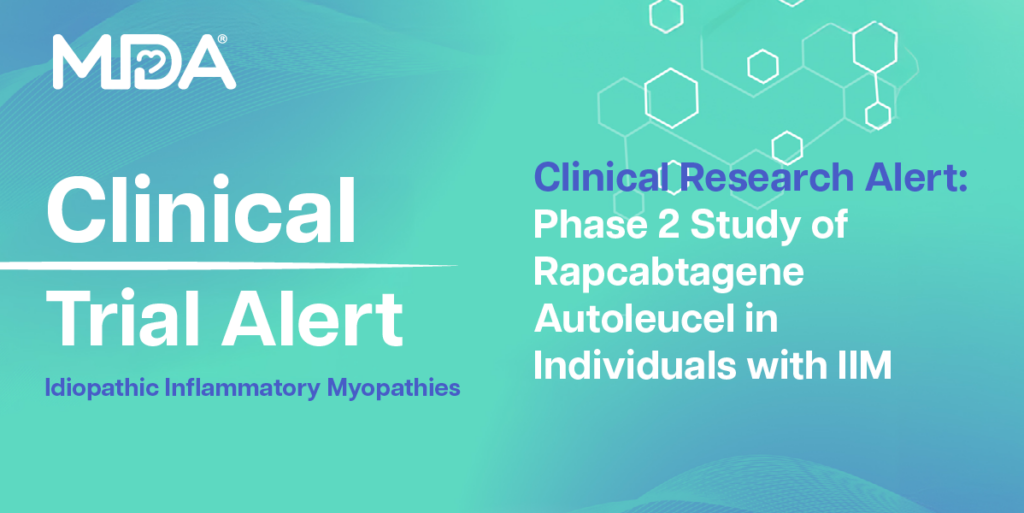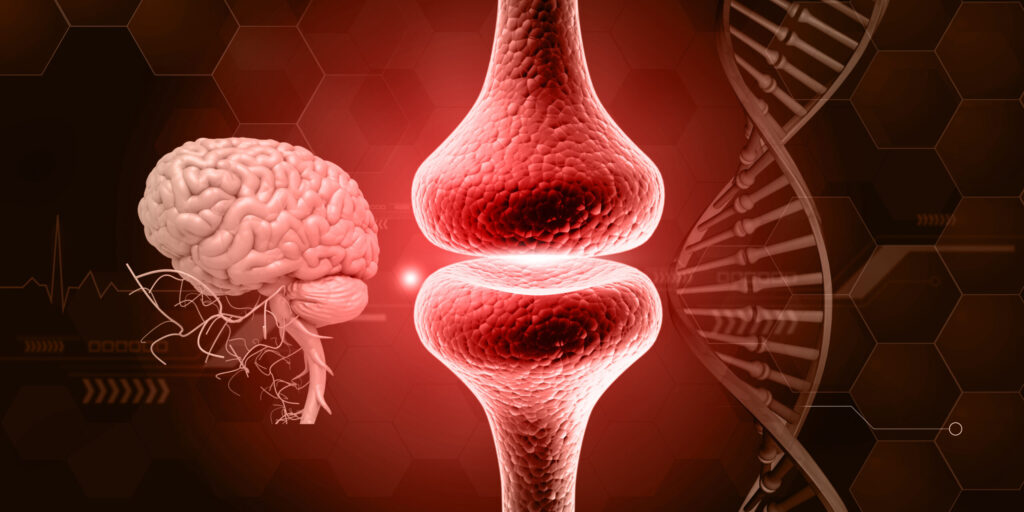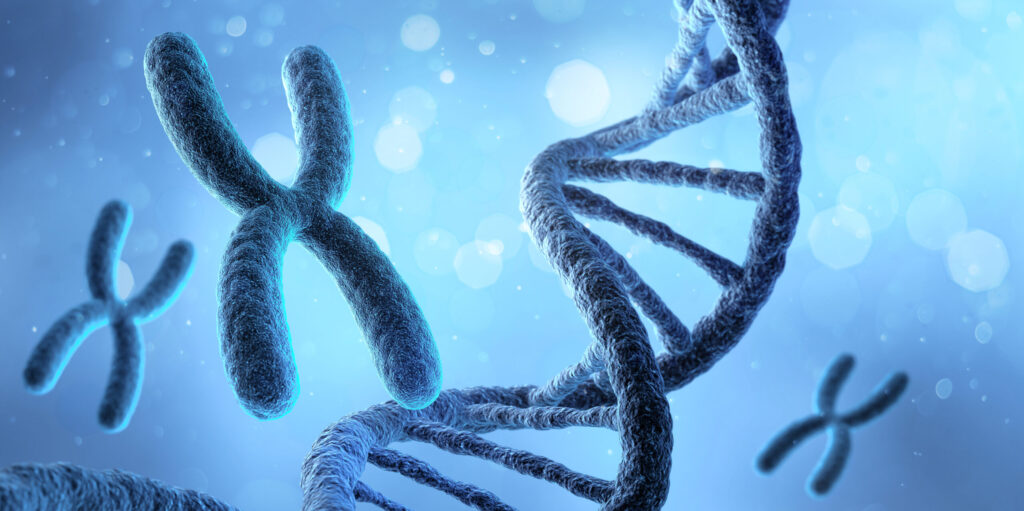
What’s the Difference Between a Clinical and Genetic Diagnosis?
By Jason Henninger | Friday, December 15, 2023
A diagnosis is a diagnosis, right? Well, in the case of muscular dystrophy and other rare neuromuscular diseases, the way you are diagnosed matters.
While a clinical diagnosis can help doctors treat your symptoms, a genetic diagnosis is considered the most accurate way to characterize a specific disease and pinpoint a genetic cause. A genetic diagnosis may be required to receive new therapies and participate in clinical trials, and it may allow doctors to predict if the heart or other organs will be affected.
“Many patients with muscle diseases share common symptoms, like muscle weakness, fatigue, muscle pain, or muscle cramps. However, there are many types of muscle diseases,” says Margherita Milone, MD, PhD, a neurologist at the MDA Care Center at the Mayo Clinic in Rochester, Minnesota. While symptoms can be similar among muscle diseases, causes and treatments differ depending on the precise condition. That’s why it’s important to get an accurate diagnosis.
What is a clinical diagnosis?
To make a clinical diagnosis, doctors consider your symptoms and family medical history, conduct physical examinations, and may order diagnostic tests [Key Diagnostic Tests for Neuromuscular Diseases]. Testing might include an electrodiagnostic test, imaging, and blood tests to look for signs of nerve or muscle damage. A blood test to check creatine kinase (CK) levels is often part of diagnosing a muscle disease, understanding CK levels can help you navigate this diagnostic test. It may take several exams and tests to narrow down the cause of your symptoms.
Combining the evidence they find through these methods, your medical team may come to a conclusion about what is causing your symptoms and provide a clinical diagnosis.
What is a genetic diagnosis?
Genetic testing can lead to a genetic diagnosis. Genetic tests generally use saliva or blood samples to examine your DNA and identify genetic mutations or variants that may cause disease. Some genetic tests may be done with tissue from a muscle biopsy.
Genetic testing can be used to confirm a clinical diagnosis or provide more information about a specific type of condition. Genetic testing may also be used to determine if you have a genetic condition that runs in your family before you even have symptoms.
Different types of genetic tests look at different parts of the DNA, and no single test can detect all genetic conditions. Your doctor or genetic counselor will determine which tests to order based on your medical and family history. In some cases, several genetic tests may be needed to narrow down the specific condition.
What type of diagnosis do you need?
Genetic testing is playing an increasingly important role in diagnosing neuromuscular diseases.
“In the past five to 10 years, things have shifted a lot more toward genetic testing,” says Stephanie Acord, MD, a pediatric neurologist and director of neuromuscular disorders at Cook Children’s Hospital in Texas. “The world of medicine is moving toward precision-based medicine. In the past, we’ve treated patients based on their symptoms. When you look at genetic syndromes, more is being done to treat underlying factors of diseases.”
For example, Duchenne muscular dystrophy (DMD) is caused by mutations in the dystrophin gene. Elevidys, a gene therapy approved in 2023 to treat children ages 4 to 5 with DMD, works by introducing a shortened version of the dystrophin gene into muscle tissue, helping the body produce the dystrophin protein that keeps muscle cells intact. One of the criteria for receiving this gene therapy is completing genetic testing to confirm a mutation in the dystrophin gene.
Even if a gene-targeted therapy isn’t available for your disease, it may be beneficial to have a genetic diagnosis. Pinpointing the specific disease-causing mutation can lead to eligibility for certain medications and clinical trials, as well as a better understanding of how the disease will progress.
Because the diagnostic journey begins in the clinic, many people get a clinical diagnosis first and then use genetic testing to confirm or refine it.
For example, in the case of DMD, clinical observation usually leads to the decision to order a genetic test. Jena Krueger, MD, a pediatric neurologist at the MDA Care Center at Helen DeVos Children’s Hospital in Michigan, explains: “A clinical description of DMD might include weakness in the legs, arms, and hips; difficulty climbing stairs; and large calf muscles. Add a possible developmental delay, and we can look at that child and have a really high suspicion of DMD, but before starting treatment or looking for clinical trials, we want to have that definitive answer, so we do genetic testing.”
While a genetic diagnosis is ideal for a genetic disease, not all neuromuscular diseases are genetic.
“We have two main groups of muscle disorders,” Dr. Milone explains. “One group is genetic, where a patient has an underlying gene defect present since birth, even though the disease may manifest later in life. The second group of muscle diseases is acquired, such as autoimmune muscle diseases or toxic muscle diseases that are sometimes related to drugs.” Acquired neuromuscular diseases include inflammatory myopathies, like dermatomyositis or immune-mediated necrotizing myopathy.
In a case where a patient comes in with symptoms a doctor suspects are caused by an acquired neuromuscular disease, time may be of the essence for making a precise diagnosis and starting treatment. A physical exam and clinical diagnostic testing can provide the fastest route to diagnosis and effective treatment, whereas genetic testing takes time and might fail to provide the necessary answers.
The diagnostic journey
In the rare disease community, it’s common to hear stories of years spent searching for an accurate diagnosis. Fortunately, advances in genetic testing, expanding newborn screening, and growing awareness of rare diseases are helping many people get their diagnoses more quickly.
Learning about key diagnostic tests [Key Diagnostic Tests for Neuromuscular Diseases] and what to ask your doctors while seeking a diagnosis gives you the tools you need to make this process go more smoothly.
Next Steps and Useful Resources
- When you’re searching for a diagnosis, ask your doctor these questions.
- Learn more about the many neuromuscular diseases MDA covers in the Quest Media Diseases A-Z content library.
- Learn more about understanding creatine kinase levels and testing.
- Stay up-to-date on Quest content! Subscribe to Quest Magazine and Newsletter.
Disclaimer: No content on this site should ever be used as a substitute for direct medical advice from your doctor or other qualified clinician.




